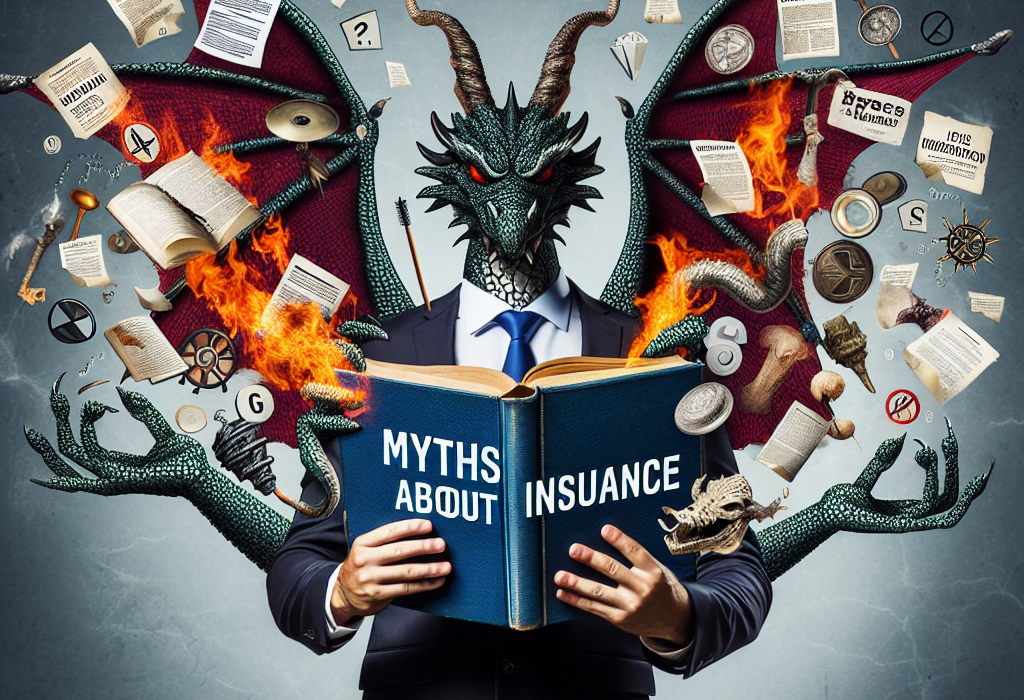Misconceptions about insurance can lead to critical mistakes when purchasing or using insurance. Understanding these misconceptions may not only save you money but also ensure that you have the coverage you need when you need it most. In this article, we will debunk some of the most common misconceptions about insurance coverage.
1. All damages and losses are covered in a standard homeowner’s insurance policy
One of the prevalent misconceptions people have is that everything in their home is covered by a standard homeowner’s insurance policy. This is not entirely true. For instance, damage or loss caused by floods, earthquakes, or normal wear and tear is not typically covered in a standard homeowner’s policy.
If you reside in an area prone to floods or earthquakes, it would be wise to purchase additional insurance specifically for these perils. Alternatively, you might want to consider obtaining a comprehensive home insurance policy that provides more extensive coverage than the standard policy.
2. The market value of your home is the best basis for your homeowner’s insurance
Another common misconception is about the amount of insurance one should have. Many people believe that their home should be insured for its total market value. However, it would be more beneficial to insure it based on its rebuild cost.
The rebuilding cost essentially includes the expenses you would incur if you had to rebuild your home from scratch. It often differs significantly from the market value. If you insure your home based on its market value, you might end up over-insured or under-insured.
3. Personal auto insurance also covers business use of your vehicle
It’s often mistakenly believed that a personal auto insurance policy covers all uses of the vehicle. In fact, standard auto insurance doesn’t typically cover substantial business use of your vehicle. If your vehicle is used primarily for business purposes, you will probably need a specific commercial vehicle insurance policy to be covered.
4. Insurance is not necessary if your property is in a safe area
The location of your property is a factor in determining insurance premiums but having property in a ‘safe’ area does not eliminate the need for insurance. Even in the safest areas, unforeseen circumstances such as fires or natural disasters can cause damage. Furthermore, insurance also covers the property owner against potential liabilities.
5. Older people pay more for auto insurance
While it’s true that young drivers often face higher premiums due to their lack of driving experience, it’s not entirely true that older drivers always pay more for auto insurance. Many factors impact auto insurance rates, including driving record, type of car, and even credit scores. Mature drivers with a good driving record often benefit from lower premium rates.
Conclusion
Insurance is a complex array of products designed to protect finances, property, and life from various risks. Many misconceptions revolve around insurance, potentially leading to financial loss. Understanding these misconceptions and informing yourself can help you make better-informed decisions, securing you against financial losses due to inadequate coverage.
FAQs
1. Should I base homeowners’ insurance on the market value of my home?
No, your homeowner’s insurance should rather be based on the rebuild cost of your home. This cost includes all expenses that would be incurred if you rebuild your home from scratch.
2. Does auto insurance cover business use of my vehicle?
No, personal auto insurance usually doesn’t cover substantial business use of your car. You will typically need a commercial vehicle insurance policy for that.
3. Should I still get insurance if I live in a safe area?
Yes, insurance is vital even in safe areas to protect against unforeseen circumstances such as fires or natural disasters. Insurance also guards you against potential liability claims.
4. Do all damages and losses get covered under a standard homeowner’s insurance policy?
No, a standard homeowner’s policy typically doesn’t cover damages or losses caused by floods, earthquakes, or normal wear and tear. Consider purchasing additional coverage for these perils if necessary.
5. Do older people always pay more for auto insurance?
No, while young drivers often pay higher premiums, older drivers with a good track record can benefit from lower premium rates. Many factors, including driving record, type of car, and credit scores, affect auto insurance rates.













